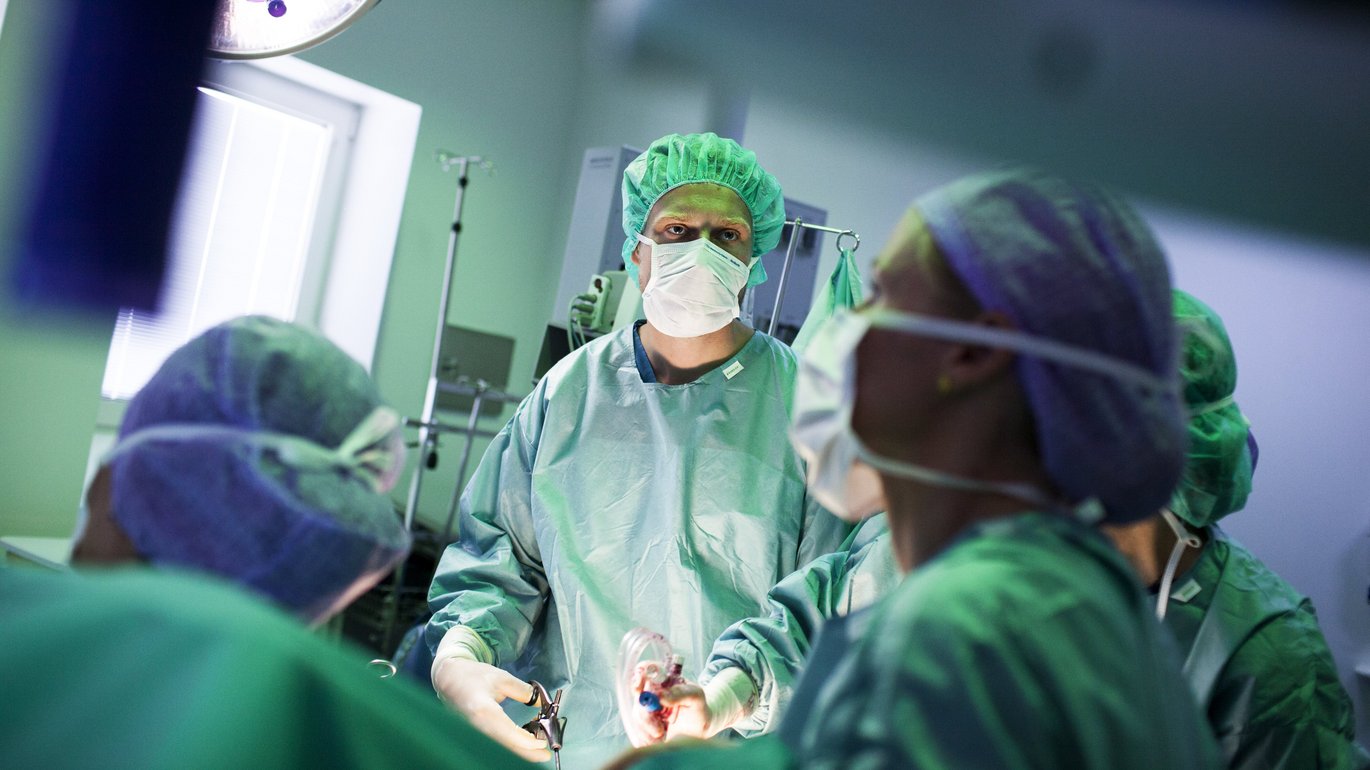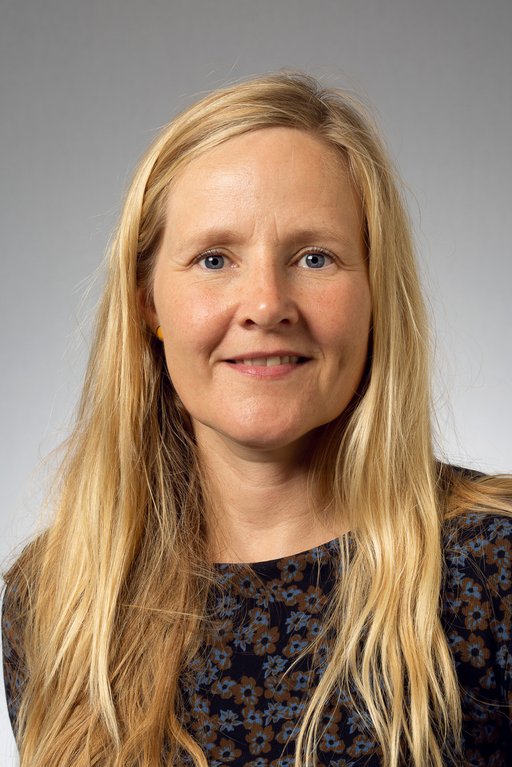Who will pledge the Hippocratic oath in the future?
Who are the medical doctors of the future? What skills will they need to meet future healthcare challenges and opportunities? The employer panel at medicine recently gave their views on who will be putting on the medical doctor’s gown in the future.

Members of the panel:
- Ida Götke Head of Nursing, Hospitalunit West, Region Midt
- Phuong Le Reisinia Medical Director, Psychiatry and Social, Aarhus Universitetshospital
- Hosea Dutschke Director of Health & Care, Aarhus Kommune
- Søren Prins MD, Postgraduate clinical Associate Professor, Midtbylægerne Silkeborg
- Nina Bjerre Andersen Registrar, Aarhus Universitetshospital, Department of Cancer
- Stefan Lindgren Professor, Institutionen för Kliniska Vetenskaper, Lunds Universitet
- Jesper Brink Svendsen Registrar, Young Doctors representativ Danish Medical Association
- Klaus Lunding Chairperson Danish Patients
- Claus Thomsen Medical Director, Aarhus Universitetshospital
- Mads Skipper Head of Secretariat, Koncern HR, sundhedsuddannelser
- Jonna Frølich Dean of Education, Nursing, VIA University College
- Mikkel Friberg Head of Unit, Authorisation and EU health insurance, Danish Patient Safety Authority
- Nicole Schmitt Professor, Deputy Head of Department Institute of Biomedicine, University of Copenhagen
- Lone Winther Jensen Chairperson, Regional Council for Doctors Further Education
- Tine Bryan Stensbøl Senior Vice President R&D Project and Business Management, Lundbeck

The medical doctors of the future have relevant digital competences, an international outlook and an eye for disease prevention. These were some of the opinions that the employer panel for medicine discussed when taking a look into the future at a meeting in the beginning of March.
The panel was hosted by director of studies at medicine, Associate Professor Janne Lebeck. With new academic regulations in place, the debate was focused on inspiration rather than specific inputs for major changes to the degree programme. And although the panel did not have a crystal ball to gaze into, the debate and the inputs were very useful, says Janne Lebeck:
"We had specifically asked for input on digitisation and internationalisation, but also for general inspiration on what’s happening right now that could be important to keep in mind when we come to make smaller adjustments to the degree programme in the future."
We need to look at the doctor's role as a health promoter
One topic on the agenda was how medical doctors should have greater focus on prevention in the future. Because the healthcare system is facing a serious challenge, explains the Director of Health and Care in Aarhus Municipality, Hosea Dutschke, who also gave a presentation.
"There will be many more elderly people and chronic diseases in the future. The good thing is that we’re living longer, but on the flip side, many people also have more years during which they’re ill. Therefore, we need to radically change the healthcare system, as it will otherwise end up imploding."
Health promotion and disease prevention will therefore become more central at both hospitals and general practitioners in the future, says Hosea Dutschke.
"Today, around three per cent of the budget goes to health promotion, with the remaining 97 percent used on treatment. If we could just double the three per cent, so there was more focus on avoiding the need for people to be admitted to hospital or treated, then that would be a good start.”
What Hosea Dutschke hopes to see is medical doctors in future who are not only strong specialists, but also wide-ranging health promotors with foresight, who do not only look at diagnosis and treatment.
"I hope that GPs will focus more on health promotion and preventative measures. How do I get my patients to take the right action which gives them health and zest for life and being part of communities? Where can I pick up on something before it becomes serious and requires treatment? And the same applies to the hospitals. How do they signal health promotion and preventative measures on a daily basis? How can they transverse the system in their work? Can we help people to begin rehabilitation more quickly after an operation, for example by referring them to the municipality as part of the rehabilitation plans?"
But reshaping the medical programme to focus more on health promotion is not feasible at the moment, says Janne Lebeck.
“There are many very specialised courses on the medical degree programme, so that we can ensure that the medical doctors have the medical knowledge they need when they graduate. In this context, knowledge about health promotion is already part of several courses on the medical degree programme, and with a busy degree programme that places great demands on the students, expanding certain elements must be seen in the context of the other elements which would have to be given less scope," she says.
Janne Lebeck also emphasises that a reorganisation of the recently implemented academic regulations is not on the cards in the near future. But she says we can still take a look at what is possible within the present framework. One possibility which was mentioned at the meeting is to look into whether it would at some point be possible to create a student clinic, where the focus is on health promotion, among other things.
The difficult transition from student to stressful reality
One challenge faced by many new medical doctors is the shock they can experience when they step outside the university's walls and enter the country's hospitals. They lack the experience and the calmness to trust their decisions and lack a sense of identity as a medical doctor. Here, longer clinical training courses with more responsibility were mentioned as a possible solution during the debate among the employer panel. And Janne Lebeck was pleased to hear this – as it is already part of the new academic regulations.
"It was good to see that there was harmony between the things that were called for and our new academic regulations. All medical students on the third semester of the Master's degree programme will have eight weeks of clinical training at the same place. In the past, they’ve had to work in several different departments so they experienced a wide range of medical specialities. Now they will instead have the opportunity to become an integrated part of a department for a time."
But pointing out that things have already happened due to the new academic regulations is not the same as saying that they cannot be done even better, says Janne Lebeck.
"We could perhaps take a look at whether there’s an opportunity to place even more responsibility on the students during the clinical training period. One proposal from the employer panel meeting was that instead of calling it ‘clinic training' we should instead call it ‘clinical work’. Because the point is that the students need to get the feeling of working as a medical doctor under their skin."
Another challenge for new medical doctors is to make decisions on the basis of an incomplete foundation in day-to-day work in the departments. The long clinical training period could perhaps also help here, says Janne Lebeck.
“The new academic regulations mean that the students themselves must, to a greater degree, themselves find answers. It would be good if they could train themselves already on the Bachelor's degree programme to be okay with not knowing all the answers. To be able to navigate and make the best decision based on the information and the basis they have, and feel secure in knowing that they haven’t had the complete answer and perhaps won’t find it – and that is okay. That’s an exercise in itself, and something we must remember to communicate to the students."
International and digital
The digital transition and internationalisation are focal points in the educational strategy at Health, and were therefore the selected set topics on the agenda for the debate. And although it may sometimes be a challenge for some students that some of the teaching takes place in English, English language medical skills are actually important competences to have, says Janne Lebeck.
"We could perhaps be better at explaining why this teaching is in English. It’s important for medical doctors to be familiar with acquiring medical knowledge in English, as this prepares them for reading new texts and having a dialogue with international colleagues. If nothing else, Covid-19 has shown us that things can sometimes move fast, and if you can't follow what’s going on in English, then you’ll get left behind."
But medical doctors should not only speak English – they must have a clear understanding of and ability to navigate in the digital language of the future. An educational digital transformation process which the University of Copenhagen is also working on.
For this reason, Nicole Schmitt, who is professor and deputy head of department for education at the Department of Biomedical Sciences, University of Copenhagen, and a member of the employer panel, was invited to give a presentation. At the University of Copenhagen, the digital strategy has three overall tracks: ‘digital literacy', ' digital core competences and core academic methodology' and finally 'digital tools in teaching.' And the very specific input about the process of introducing a digital core curriculum on the medical degree programme at UCPH was very useful, says Janne Lebeck.
"We stand on the brink of looking into how we can equip our students digitally for their future role as medical doctors. What do they need? And how can we provide it for them? They will have to work much more digitally than today, with programs and apps that continuously evolve. It’s therefore important to give them a basic level of digital understanding. It was therefore good to see the process that has taken place at UCPH in relation to getting the academic environments involved, and finding out what makes sense for our medical studies in relation to the digital teaching."
Janne Lebeck will now take the employer panel's input with her to further discussions about the development and adjustment of the medical degree programme at the faculty.
Contact
Janne Lebeck
Associate Professor & Director of Studies Janne Lebeck
Aarhus University, Department of Biomedicine
Tel.: (+45) 8716 7651
Email: jl@biomed.au.dk